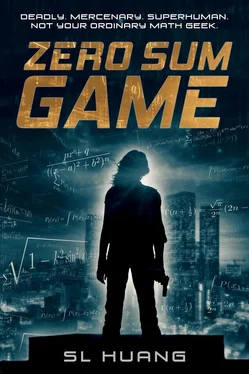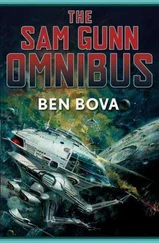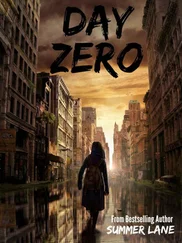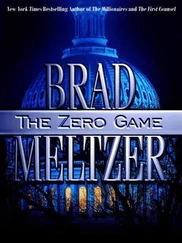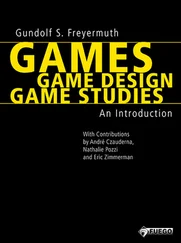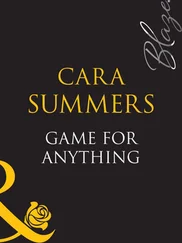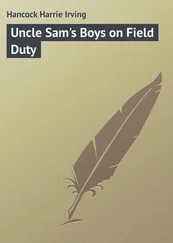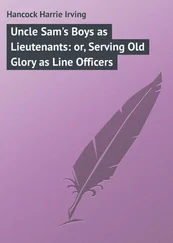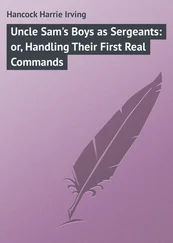I was two streets away from the apartment where we’d left Arthur. The final block was bathed in the pulsing red of police lights, their deadly brightness reflecting off pavement still wet from the recent rain. I could see officers with nightsticks out, shouting and trying to corral belligerent rioters. None of them paid the least bit of attention to me. I pulled the bike over, raced up the stairs to the flat, and burst through the door to find it dark and empty. Arthur wasn’t there.
With no working cell phone, I had no way of contacting him. But despite my lack of observational prowess when it came to the human condition, in the short time I’d known Arthur I had figured out a few things about him, and I had a sneaking suspicion that in a time of crisis he’d try to find somewhere to be of help.
After that, it didn’t take long to find him. I just went to the nearest ER.
The place was chaos. The whole ER was a mess of screaming, jostling, crying people who had swarmed the hospital entirely until they swelled out onto the sidewalk in a pawing, pleading mass. The hospital was as dark as everywhere else—apparently their generators had been fried—but people had dug up working flashlights and some battery-operated lanterns, and I saw some of the nurses battling the commotion with glowsticks around their necks.
Tresting’s composite might still be on police most-wanted boards, but that didn’t seem to matter to him. He had thrown himself into the crisis with authority, and was currently rescuing the ER staff from drowning by being a booming voice of order—keeping people neatly triaged, calming screaming voices, soothing hysterical parents. The staff was going to hate me for pulling him out.
I pushed through the mob of bleeding and coughing people. “Tresting!”
He turned, and his eyes went wide. “Russell! Get those out of here!”
I had forgotten I still had several large firearms slung on my back. I glanced to either side to find a circle of space had formed around me, people shrinking back and staring. The dancing flashlight beams threw the pushing crowd into a seething knot of flesh and shadows, its humanity hidden in the darkness. I grabbed Arthur’s arm and hauled. “Come on, then.”
Fortunately, Los Angeles had other things on its mind than a private citizen who wasn’t currently using the firearms she was carrying, and nobody tried to stop us from heading anonymously back out into the night.
“Russell, what the hell is going on?” demanded Tresting as I hurried him along the sidewalk. “Didn’t work, did it? That thing you were trying to swing with the damn flash drive?”
“We started,” I said. “Long story short, Pithica caught wind of it and decided the quick way to stop us was to knock out every computer in LA.”
“They did this…?” Arthur’s mouth dropped open. He shook himself. “Thought you left LA. Didn’t think I’d see you back here.”
“Well, we didn’t want you to know—Pithica brainwashing and all that—but LA’s a big enough city to disappear into.”
He nodded, not questioning it. “Checker okay?”
“Rio’s looking after him.”
Tresting’s expression soured.
“Hey, he’s safer than anyone I know that way,” I said severely. “Look, I’ve got to finish getting our program out. I need your help.”
“Thought I was a liability,” he said.
“Desperate times, desperate measures. I need backup.”
It was fortunate he didn’t know me better. He didn’t question that either. Instead he just took a breath and nodded, back in crisis mode. “Where to?”
“Los Angeles Air Force Base,” I said, leading him around the corner at a quick trot. “They’re the people most likely to have a working computer still. Hop on.” We had reached the pink bike.
Arthur looked from me to the bike. “Your color.”
“We have working transportation; don’t knock it.” I unslung the Mossberg and handed it to him along with a pistol. “Warn me before letting loose with the shotgun.”
“Will do,” he said, accepting the weapons and climbing up behind me on the bike.
“And hang on,” I instructed. “I’m planning to take the corners a little tight.”
We weren’t far from LAX and the Air Force base. At least not the way I rode. As soon as the green airport signage began popping up and wallpapering the streets, I pulled over to ditch the bike.
“What’s the plan?” asked Arthur, shaking his legs out. He didn’t otherwise comment on my driving.
“Break in,” I said. “Find working equipment. Finish the job. Elegant in its simplicity, isn’t it?”
“What about all this?” Arthur swept a hand toward the darkened, violent streets. “Can we fix it? Restore the power?”
“Power’s not the problem,” I said. “It’s an EMP. They fried every circuit board from here to Phoenix. Anything run by a chip will have to be replaced before it’ll work again, even after the power comes back on line.”
He seemed to get it. “That’s why the cell phones are out, too.”
“Yeah. I’m guessing landlines might still work as long as they weren’t fancy cordless phones with a power connection—well, assuming something somewhere along the way in the telephone network hasn’t started being run by a computer. And shortwave radio would still work.” That was the sum total of Checker’s and my combined knowledge and guesses about post-apocalyptic emergency communication. I hoped the base would have one or the other. And I hoped Arthur was listening to me.
“I can’t believe Dawna—” His mouth twisted, and he ran a hand over his face.
It was exactly the opening I needed. “Well, she’ll have more than enough to occupy her soon. Rio managed to poison her, you know. Back when we were all captured. A bad poison, too. She’ll be starting to feel the effects any time now and be dead in two days. Christ, what a relief.” I bit my lip. I was talking too much, but then, I’m a very bad liar.
Arthur didn’t seem to notice. He went still. “ What?”
“Yeah. There’s an antidote, but once she starts showing symptoms, it’ll be too late. Come on, let’s head.” I kept him in the corner of my eye, wondering if he would turn the shotgun on me, demand the antidote to take back to Dawna. But he didn’t seem to be that far gone.
Hopefully he’d be just far gone enough to warn her.
We left the motorcycle in a park a few blocks out and I led the way at a jog, hoping I remembered the layout of streets correctly in this part of Los Angeles. I didn’t have the city memorized by a long shot, but I’d had enough close escapes that I had made a point of swallowing large portions of the road map, and hard experience had taught me to take special care to know the areas near the airports.
Of course, the moment we skidded around the corner onto El Segundo, we ran straight into a gang of looters shouting raucously and hurling Molotov cocktails through the windows of a large sporting goods store.
They saw us. One of them catcalled. Another drew a knife. I shot him before he finished the motion.
The shouting stopped as if the looters’ voices had been snuffed out. I saw another guy start to reach into his pants and shot him, too. One of his mates started screaming profanity at me, and my handgun barked one more time—I had far more bullets than I had patience.
The looters all froze. The sporting goods store started to catch fire, the flames roaring upward and backlighting them into aggressive silhouettes.
By that time Arthur had the shotgun up on my left. “Get out of here!” he shouted.
The gang scattered.
I started to move forward, but Arthur grabbed my arm, hard. “The Air Force base,” he said. “We ain’t killing anyone. Looters who try and attack us, that’s one thing, but we ain’t killing men and women just doing their jobs.”
Читать дальше
